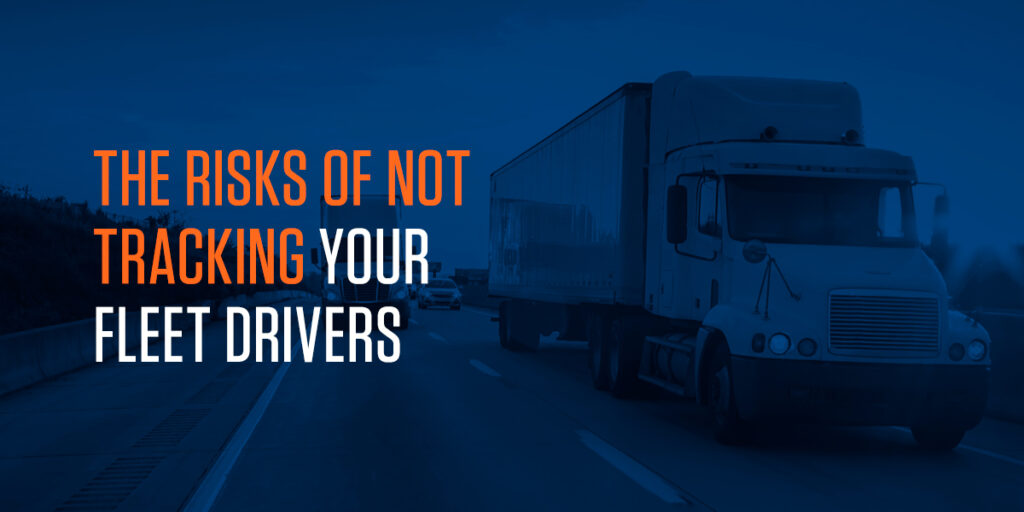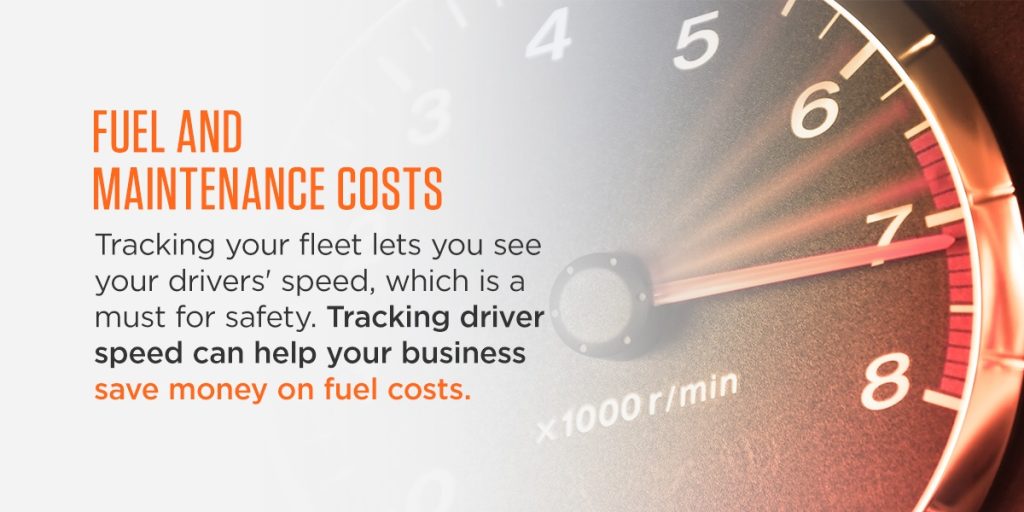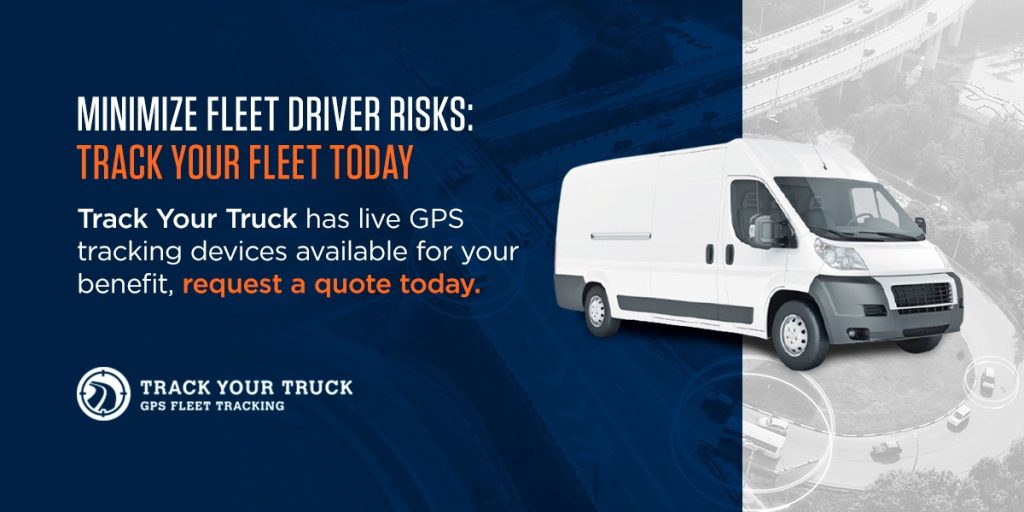

It’s 11 o’clock. Do you know where your drivers are? If your company isn’t using fleet driver tracking, the answer is most likely “no.” Keeping tabs on your fleet lets you know where your vehicles are at all times. It also means you can track driving styles and can keep your costs under control. Not using GPS tracking devices leaves your company open to several risks, which can affect your bottom line and your fleet drivers’ safety and well-being.
Below, let’s look at the risks of fleet driving without tracking:
Not tracking your fleet can mean less productivity. Drivers might have to criss-cross over each other or retrace their routes if the routes aren’t well designed, meaning it takes them longer to accomplish a task. A dip in productivity can mean less revenue for your company. It can also mean your clients are less-than-impressed with the service you provide.
Your business, clients and drivers all benefit from a boost in your company’s productivity. When drivers make deliveries efficiently or get from point A to B in the shortest amount of time, they can accomplish what they need to do quickly. Drivers have less stress when they have efficient routes and don’t have to retrace their steps.
Tracking your fleet lets you put together a route that makes the most sense based on your drivers’ tasks during the day. More efficient routes and higher productivity also mean your clients will be happy with what they get from your company.
Transportation incidents are the leading cause of fatal work injuries. Every year from 2016 to 2019, just over 2,000 people died annually due to workplace transportation incidents. Unsafe driving behaviors, such as speeding and hard braking, can contribute to the risk of injury. When you don’t track your fleet, you have no way of monitoring driver speed or behaviors, making it more likely that unsafe behaviors will occur.
Along with putting drivers and others on the road with them at an increased risk of injury, not monitoring unsafe behaviors can lead to higher repair bills, as speeding and hard braking lead to greater wear and tear on a vehicle.

Tracking your fleet lets you see your drivers’ speed, which is a must for safety. Tracking driver speed can also help your business save money on fuel costs. While the ideal driving speed varies based on vehicle class and type, driving more than 50 mph generally leads to a notable drop in fuel economy. For every 5 mph your drivers go above 50 mph, you can expect to spend an additional 15 cents per gallon for gas.
Other unsafe driving habits, such as hard braking, also increase your fleet’s maintenance cost. When a driver practices hard braking, the vehicle’s tires will likely wear down quicker, requiring more frequent replacement. Hard braking also wears out the brake pads sooner, increasing replacement costs.
Tracking your fleet lets your drivers know you are monitoring them and their driving style. It can discourage the type of driving that causes the most wear and tear on vehicles.
Depending on your fleet’s size, it can be easy for a vehicle to go missing if you don’t have a way of keeping tabs on it. An unscrupulous employee might decide to “borrow” a vehicle for a day or two, returning it after they’ve used it. Someone might break into the vehicle and take it on a more permanent basis.
With GPS tracking, you or your company’s fleet manager will get regular notifications of the vehicles’ locations. You can see quickly and immediately when a truck or car isn’t where it’s supposed to be and notify the police of its theft. Since the tracker locates the vehicle using GPS, retrieving it is a simple process.
Road accidents and traffic jams can mean your vehicles take longer to reach their destinations, whether to start a job or make a delivery. Without GPS tracking devices, it can be difficult to anticipate traffic incidents or slowdowns, making delays more likely.
Delays can be costly for your business, as they can mean work hours are lost and projects end up behind schedule. These incidents can also cause clients to look elsewhere when they need a similar product or service in the future.
With GPS tracking, a dispatcher can identify traffic concerns or weather patterns and redirect a vehicle so it arrives on time.
You want to keep your current clients happy by delivering your products or services on time. You also want to keep potential clients satisfied and convince them your business is one they want to work with. Your company’s reputation can take a hit if you don’t keep tabs on your fleet.
For example, if you aren’t tracking your drivers and one of them is seen speeding, it can make a potential client question whether they’d ever work with your company. If a driver gets pulled over while behind the wheel of one of your company vehicles, that won’t look good to passersby, either.
Safe drivers make your business look good, which can mean more sales and higher revenue in the long run. In turn, your bottom line increases, and you can draw in and retain more pleased customers.
Fleet tracking is good for more than just your company. It’s good for your company’s insurance provider, too. Reducing the risk of theft and vehicle accidents means reducing potential costs for an insurance company. Businesses that don’t use fleet tracking programs will likely pay higher insurance premiums than companies with fleet trackers installed.
If you don’t currently have fleet tracking software in your vehicles, it can be a good idea to reach out to your insurance provider to see if it will give you a discount on your premium once you install the devices.

Installing tracking devices in your fleet vehicles allows you to monitor driver behavior, improve on-time rates and protect your company reputation. Your business will also save money with lower insurance premiums and reduced vehicle upkeep costs. Track Your Truck has two types of live GPS tracking devices available for your benefit — plug-in and hardwired. To learn more about the benefits of tracking your fleet and see the devices in action, request a quote today.